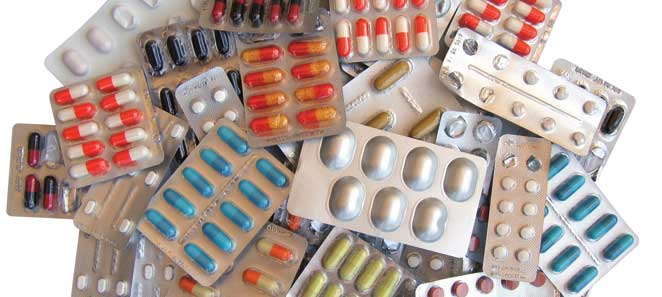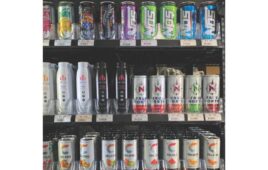 Convenience store operators who ignore the manufacturers and distributors with whom they do business may find themselves facing serious liability issues.
Convenience store operators who ignore the manufacturers and distributors with whom they do business may find themselves facing serious liability issues.
By Scott Melville and Steve Mister.
More than 150 million Americans take dietary supplements every year, trusting that they’re doing something good for themselves. And their trust is well justified, as most supplements maintain a strong track record for safety and benefit.
Dietary supplements can help individuals reach the recommended dietary intake of essential nutrients, make important contributions toward overall good health and, in some cases, even help reduce the risk of disease.
Many consumers buy these products at one of the nearly 150,000 convenience stores throughout the U.S. In fact, convenience industry data shows that sales of liquid vitamins and minerals, mineral supplements, multivitamins and one- and two-letter vitamins (such as vitamin C or vitamin D) topped $160 million last year at c-store locations, up more than 21% from the year before. Such rapid growth demonstrates that dietary supplements are products people want, and retailers are meeting a market need by stocking them.
Undisclosed Ingredients/Illegal Claims
Retailers can sell the great majority of supplements with confidence in their safety and benefits, but retailers should also be aware of illegal products masquerading as supplements. C-store owners and operators who are not vigilant about the manufacturers and distributors with whom they do business may find themselves with unsafe products on their shelves that potentially could expose the retailers to legal liability and pose harm for their customers.
In particular, according to the U.S. Food and Drug Administration (FDA), three categories—those that promise consumers quick weight loss, male sexual enhancement and bulked up bodies—are most susceptible to criminals who spike their products with undeclared and illegal active ingredients that can cause serious side effects.
While there are legitimate supplement products in these categories, it is vital that retailers protect themselves and their customers by sourcing products only from reputable manufacturers and distributors.
Though the vast majority of dietary supplements sold to consumers are safe, the FDA raised the issue of potentially unsafe supplements late in 2010, when it held a joint press conference with the five trade associations representing the dietary supplement industry, warning that there is “an alarming variety of undeclared active ingredients in products marketed as dietary supplements.”
The FDA cited products tainted with pharmaceuticals (anticoagulants, anticonvulsants, even the same active ingredient found in erectile dysfunction drugs), chemicals of unknown safety and actual illegal drugs like anabolic steroids.
Dietary supplements are not medicines and by law they are not permitted to be marketed as drugs. Manufacturers of dietary supplement products, with a few exceptions, are not allowed to say that their products can diagnose, cure, treat or, except in special cases, prevent disease.
For instance, a dietary supplement cannot make a claim to “prevent arthritis” or “treat heart disease.” However, based on evidence, manufacturers can make structure-function claims that indicate their dietary supplement contributes to health maintenance and well-being, or supports a function of the body. Examples of these types of claims include “supports immune health” or “promotes energy metabolism.”
Further, some supplements may provide carefully-written, FDA-approved health claims, such as folic acid’s ability to reduce a woman’s risk of having a child with a brain or spinal cord birth defect, and the use of calcium and vitamin D, along with physical activity, to reduce the risk of osteoporosis.
Manufacturers’ Responsibility
The organizations that we lead—the Consumer Healthcare Products Association (CHPA) and the Council for Responsible Nutrition (CRN)—share the FDA’s and others’ expressed concern about potentially unsafe and mislabeled products posing as dietary supplements.
Consumers must be able to trust that the information they read on the Supplement Facts label and ingredient list is accurate, that the dietary ingredients are safe, and that the content matches the amount declared on the label. We support efforts to crack down on rogue manufacturers that “spike” their products with anabolic steroids or illegal prescription drugs and attempt to pass them off as dietary supplements.
But just as we support action to bring improved safety compliance on the manufacturing side, we also believe that retailers—especially in the convenience segment, where supplement sales are growing so substantially—have a responsibility to know what’s on their shelves. With this knowledge, c-store retailers can and should play a key role in keeping illegal products off the market.
Retailers’ Due Diligence
If you want to be sure the supplement products you’re selling are safe and do not expose you to legal liability, here are some common sense steps you can follow:
•Deal only with reputable wholesalers, distributors and manufacturers that can offer assurance that they monitor their supply chain and the ingredient suppliers for all supplement products that they handle. Ask for documentation that the supplement maker has followed the FDA’s dietary supplement Current Good Manufacturing Practices (cGMPs) for quality control.
• Be aware of supplements that suggest drug-like effects, boast of scarce or limited availability or even (in bodybuilding or sexual enhancement products) claim to be “barely legal.” The odds are strong that they may not be legal at all.
• Don’t carry supplement products that have no company contact information (such as address, phone or Website) on the label.
• Scrutinize all product labels closely. If the label is vague or incomplete, don’t take a risk and sell the product.
• Watch out for red-flag statements that make health claims on their product labels and packaging with phrases such as “a quick and effective cure-all,” or “totally safe with no side effects”—wording which, again, cannot be proven or is not approved.
• Compare your inventory against FDA’s list of products for which it has already issued a warning letter because the product contains hidden ingredients.
• If a customer complains of a serious adverse event after using one of these products, follow up at once by calling the FDA’s MedWatch Program toll-free at 1-800-FDA-1088.
CHPA, CRN and the FDA are working together to rid the market of illegal products that pose a danger to consumers, tarnish the reputation of the legitimate supplement manufacturers, and erode consumer confidence in the c-store industry, in order to help ensure consumers have access to safe, high-quality products.
Look at the labels, ask questions of your suppliers, and contact an organization or the FDA if you’re unsure about the right thing to do.




